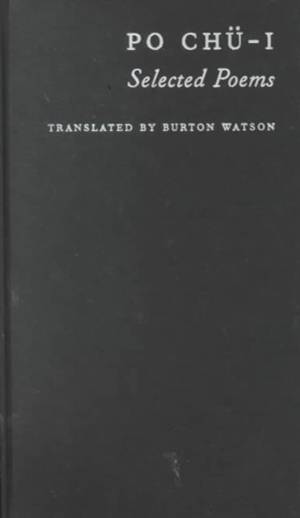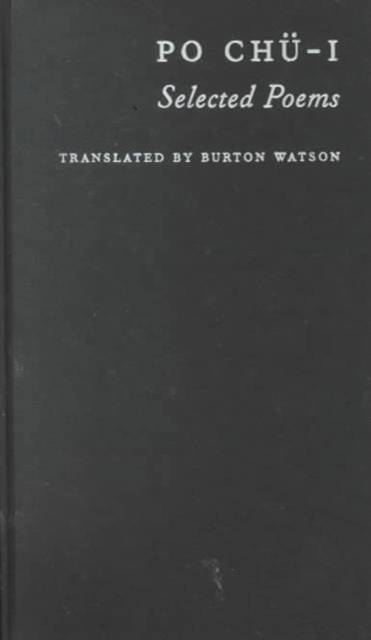
En raison d'une grêve chez bpost, votre commande pourrait être retardée. Vous avez besoin d’un livre rapidement ? Nos magasins vous accueillent à bras ouverts !
- Retrait gratuit dans votre magasin Club
- 7.000.000 titres dans notre catalogue
- Payer en toute sécurité
- Toujours un magasin près de chez vous
En raison de la grêve chez bpost, votre commande pourrait être retardée. Vous avez besoin d’un livre rapidement ? Nos magasins vous accueillent à bras ouverts !
- Retrait gratuit dans votre magasin Club
- 7.000.0000 titres dans notre catalogue
- Payer en toute sécurité
- Toujours un magasin près de chez vous
161,45 €
+ 322 points
Description
The T'ang dynasty was the great age of Chinese poetry, and Po Chü-i (772-846) was one of that era's most prolific major poets. His appealing style, marked by deliberate simplicity, won him wide popularity among the Chinese public at large and made him a favorite with readers in Korea and Japan as well. From Po Chü-i's well-preserved corpus--personally compiled and arranged by the poet himself in an edition of seventy-five chapters--the esteemed translator Burton Watson has chosen 128 poems and one short prose piece that exemplify the earthy grace and deceptive simplicity of this master poet. For Po Chü-i, writing poetry was a way to expose the ills of society and an autobiographical medium to record daily activities, as well as a source of deep personal delight and satisfaction--constituting, along with wine and song, one of the chief joys of existence. Whether exposing the gluttony of arrogant palace attendants during a famine; describing the delights of drunkenly chanting new poems under the autumn moon; depicting the peaceful equanimity that comes with old age; or marveling at cool Zen repose during a heat wave... these masterfully translated poems shine with a precisely crafted artlessness that conveys the subtle delights of Chinese poetry.
Spécifications
Parties prenantes
- Editeur:
Contenu
- Nombre de pages :
- 172
- Langue:
- Anglais
- Collection :
Caractéristiques
- EAN:
- 9780231118385
- Date de parution :
- 09-02-00
- Format:
- Livre relié
- Format numérique:
- Genaaid
- Dimensions :
- 139 mm x 235 mm
- Poids :
- 317 g

Les avis
Nous publions uniquement les avis qui respectent les conditions requises. Consultez nos conditions pour les avis.





